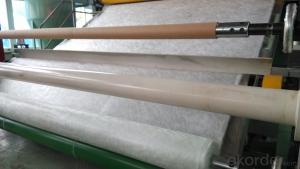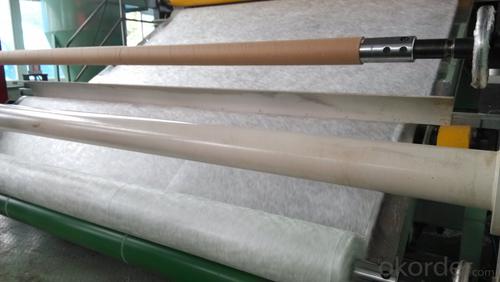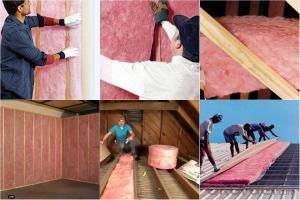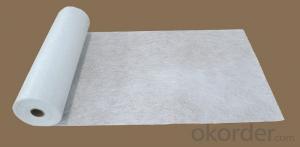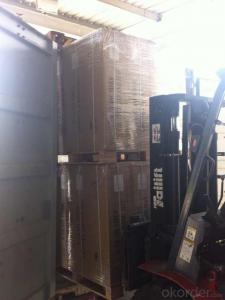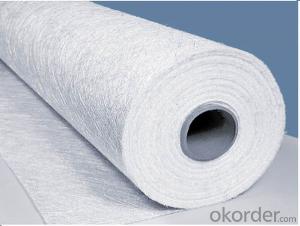Fiberglass Mat Tissue E-Glass Emulsion Chopped Strand Mat
- Loading Port:
- China Main Port
- Payment Terms:
- TT OR LC
- Min Order Qty:
- -
- Supply Capability:
- -
OKorder Service Pledge
OKorder Financial Service
You Might Also Like
E-Glass Emulsion Chopped Strand Mat |
E-Glass Emulsion Chopped Strand Mat is made of randomly distributed chopped strands held tighter by a emulsion binder. It is compatible with UP, VE, EP resins. The roll width ranges from 50mm to 1270mm. special requirements may be available upon request. |
Area Weigh(g/m2) | Roll Width(mm) | Resin Compatibility | Product Features | Applications |
225, 300, 450, 600, 900 | 1040, 1270,1524 | UP, VE, EP | High tensile strength, allowing for use in hand lay-up process to produce large-area parts; No airborne fiber when operating; Good wet-through and fast wet-out in resins, rapid air lease; High mechanical strength; Superior acid corrosion resistance | hand lay-up, filament winding, compression molding and continuous laminating processes |
225, 300, 450, 600, 900 | 1040, 1270,1524 | UP, VE, EP | Good conformability; Good wet-through and fast wet-out in resins, rapid air lease, reducing rolling out time and increasing productivity; Low resin consumption; High mechanical strength of the conposite product; Superior acid corrosion resistance | hand lay-up, filament winding, continuous laminating |
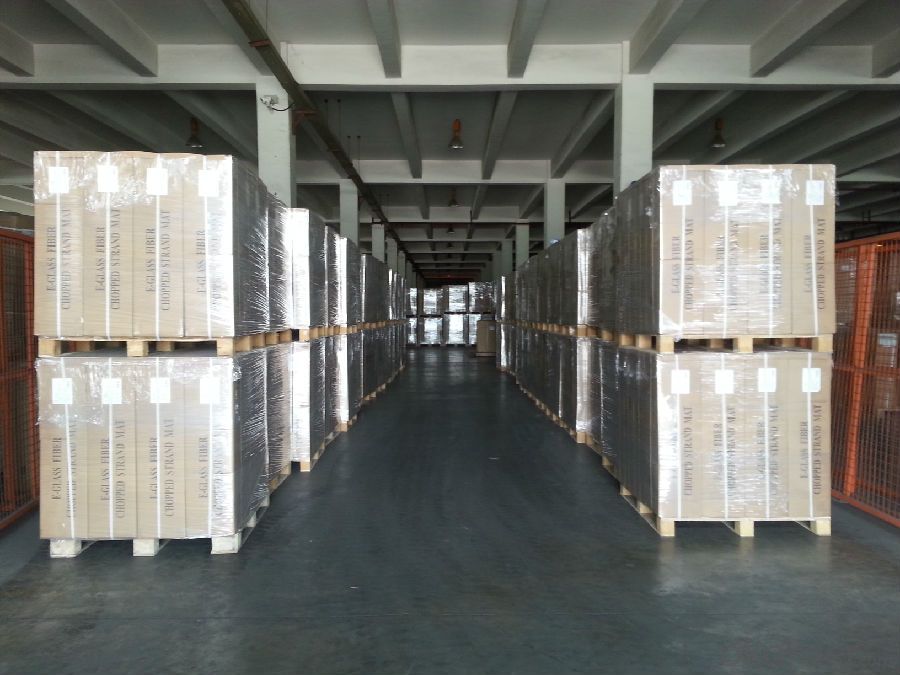
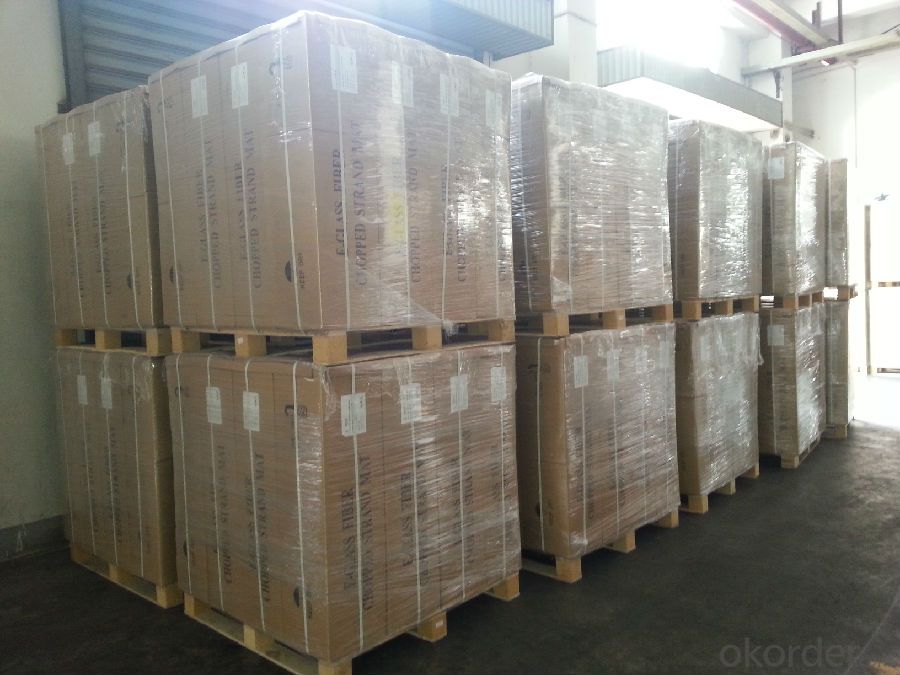
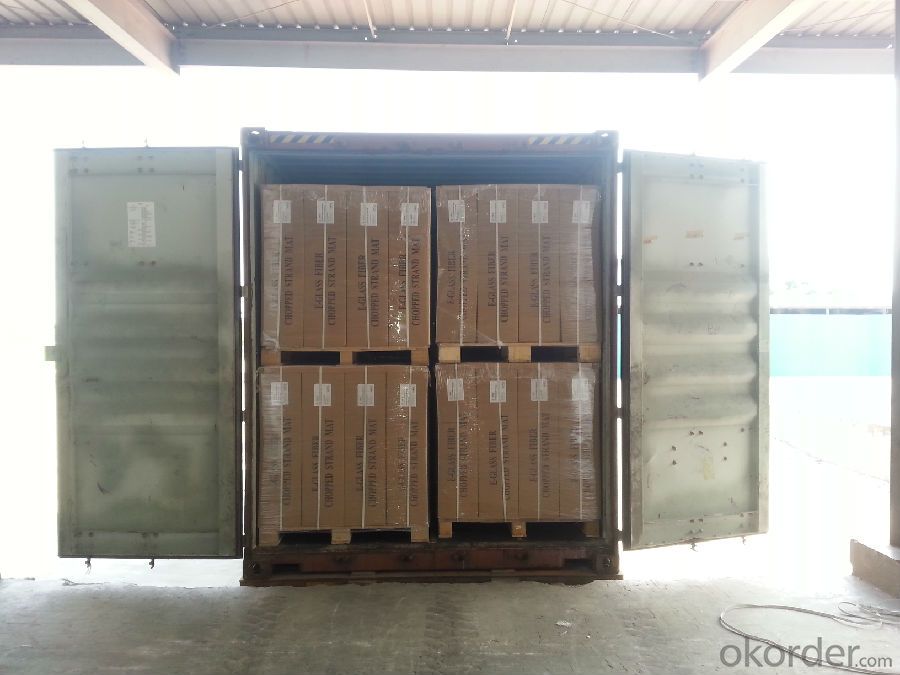
- Q: Is fiberglass mat tissue easy to install?
- Yes, fiberglass mat tissue is relatively easy to install. It is a lightweight and flexible material that can be easily cut and shaped to fit any surface. It can be applied using various methods such as spraying, rolling, or brushing on adhesive. The tissue is also self-adhesive, which makes it even easier to install as it can easily stick to the desired surface. Additionally, fiberglass mat tissues are typically designed to be water-resistant and provide excellent insulation properties, making them a popular choice for a wide range of applications. Overall, with proper preparation and following the manufacturer's instructions, installing fiberglass mat tissue can be a straightforward and hassle-free process.
- Q: Can fiberglass mat tissue be used for flooring insulation?
- Typically, fiberglass mat tissue is not employed for flooring insulation. It is a lightweight substance frequently utilized in the construction sector to reinforce plaster and concrete, and as insulation in walls and ceilings. However, for flooring insulation purposes, other materials like foam boards or batt insulation are generally favored. These materials offer superior thermal and sound insulation features that are specifically tailored for flooring applications. Moreover, they are simpler to install and better equipped to endure the pressures and demands of foot traffic on the flooring.
- Q: What is the thickness range of fiberglass mat tissue?
- The thickness of fiberglass mat tissue may vary depending on the product and manufacturer at hand. Generally, one can find fiberglass mat tissues in thicknesses that span from 0.1mm to 1mm. It is worth emphasizing that the thickness of the fiberglass mat tissue plays a significant role in determining its strength, flexibility, and various other qualities. Therefore, it is imperative to carefully choose the suitable thickness that aligns with the intended application.
- Q: Is fiberglass mat tissue suitable for automotive body panel repairs?
- Yes, fiberglass mat tissue is suitable for automotive body panel repairs. It is a commonly used material in the automotive industry due to its strength, durability, and ability to conform to different shapes. The fiberglass mat tissue provides reinforcement and helps to restore the structural integrity of the body panel, making it an effective choice for repairing damages.
- Q: Can fiberglass mat tissue be used for ceiling insulation?
- No, fiberglass mat tissue is not typically used for ceiling insulation. It is a material commonly used in the construction of composite materials, reinforcing plastic products, and for soundproofing purposes. Ceiling insulation is typically done using materials specifically designed for thermal and acoustic insulation, such as fiberglass batts, cellulose, or foam insulation boards.
- Q: Does fiberglass mat tissue provide any UV resistance?
- Yes, fiberglass mat tissue typically provides some level of UV resistance. The fiberglass mat tissue is made up of glass fibers that are embedded in a matrix of resin. These fibers and resin provide some degree of protection against UV radiation from the sun. However, it is important to note that the level of UV resistance may vary depending on the specific composition and manufacturing process of the fiberglass mat tissue. Additionally, prolonged exposure to UV radiation can still cause some degradation over time, so it is recommended to take appropriate measures such as using UV-resistant coatings or finishes to enhance the durability and lifespan of the fiberglass mat tissue in outdoor applications.
- Q: What are the different types of resins compatible with fiberglass mat tissue?
- There are several different types of resins that are compatible with fiberglass mat tissue. These resins include polyester resin, epoxy resin, vinyl ester resin, and polyurethane resin. Polyester resin is one of the most commonly used resins in fiberglass mat applications. It is cost-effective and has good mechanical properties, making it suitable for a wide range of applications. Polyester resin is also easy to work with and provides good resistance to water and chemicals. Epoxy resin is another popular choice for fiberglass mat tissue. It offers excellent mechanical properties, high strength, and good resistance to chemicals and moisture. Epoxy resin is often used in applications that require superior strength and durability, such as aerospace and marine industries. Vinyl ester resin is a hybrid between polyester and epoxy resins. It combines the best properties of both resins, offering high strength, good corrosion resistance, and excellent durability. Vinyl ester resin is commonly used in applications where high chemical resistance and superior mechanical properties are required. Polyurethane resin is a versatile resin that can be used with fiberglass mat tissue. It offers excellent flexibility, impact resistance, and adhesion properties. Polyurethane resin is often used in applications that require high flexibility and resistance to abrasion, such as automotive parts and sporting goods. Overall, the choice of resin depends on the specific requirements of the application, including mechanical properties, chemical resistance, flexibility, and cost.
- Q: Does fiberglass mat tissue provide any thermal insulation?
- Yes, fiberglass mat tissue does provide thermal insulation. Fiberglass is a poor conductor of heat, which means it does not transfer heat easily. When used as a mat tissue, it helps to trap air within its fibers, creating a layer of insulation. This insulation layer acts as a barrier, preventing heat transfer through conduction and reducing thermal energy loss. Therefore, fiberglass mat tissue can be an effective solution for providing thermal insulation in various applications, such as construction, automotive, and aerospace industries.
- Q: What is the shelf life of fiberglass mat tissue?
- The shelf life of fiberglass mat tissue varies depending on the manufacturer and storage conditions. However, on average, fiberglass mat tissue can have a shelf life of up to 1-2 years if stored properly in a cool, dry place and protected from moisture and direct sunlight. It is important to check the manufacturer's recommendations for specific shelf life information.
- Q: Can fiberglass mat tissue be used in corrosive environments?
- No, fiberglass mat tissue is not suitable for use in corrosive environments as it is not resistant to corrosion.
Send your message to us
Fiberglass Mat Tissue E-Glass Emulsion Chopped Strand Mat
- Loading Port:
- China Main Port
- Payment Terms:
- TT OR LC
- Min Order Qty:
- -
- Supply Capability:
- -
OKorder Service Pledge
OKorder Financial Service
Similar products
Hot products
Hot Searches
Related keywords
